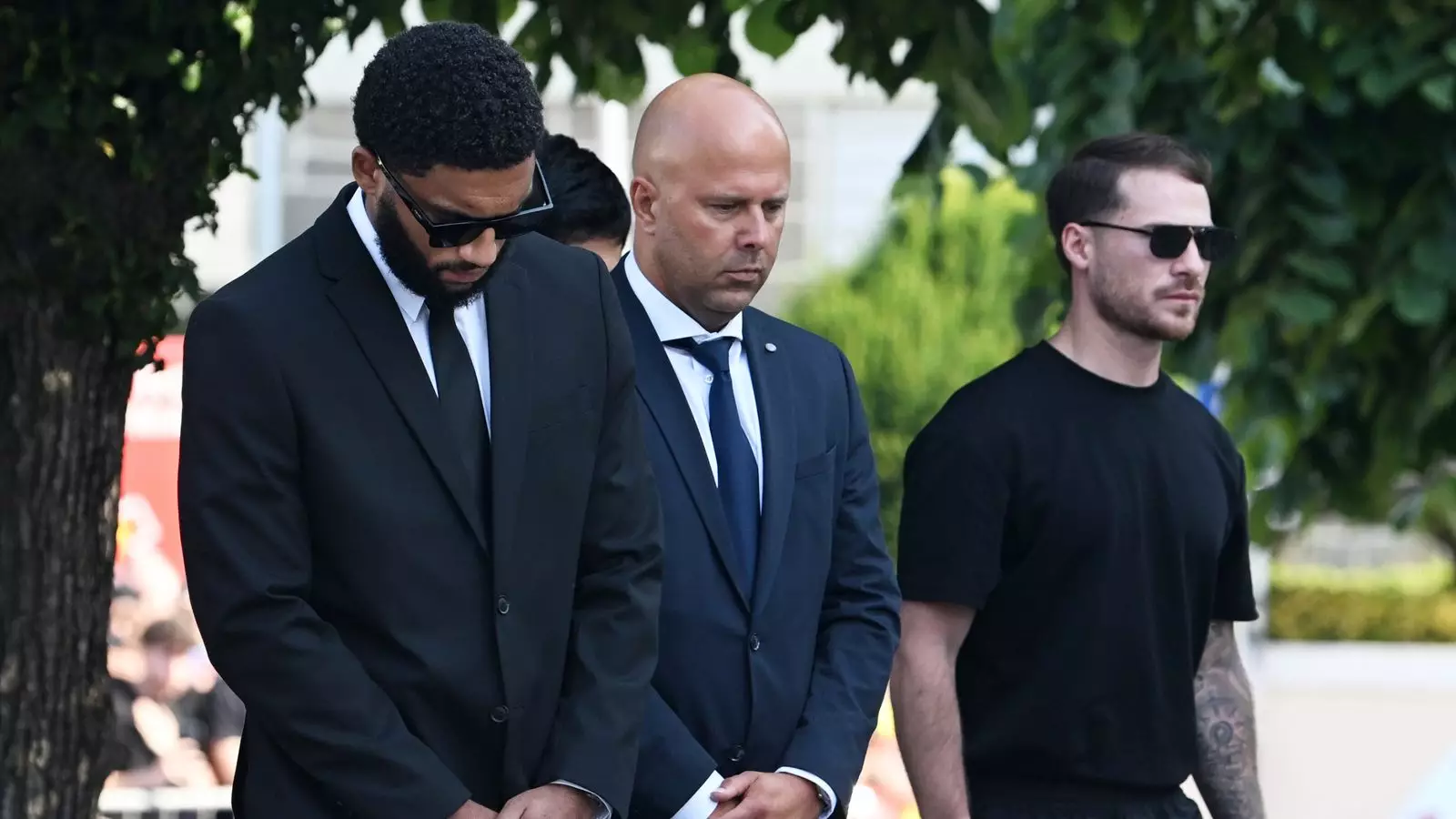In an era often characterized by rapid progress and digital connectivity, it is painfully sobering to witness how fragility can cut through even the most vibrant lives, leaving a scar on communities and fans alike. The recent death of Diogo Jota and his brother Andre Silva is a stark reminder that life can be as unpredictable as a thunderstorm, especially when we presume safety in the moment. Their untimely demise, caused by a car tragedy that turned a routine night into an eternal loss, exposes society’s inability to safeguard its most precious assets — human lives. While their talents and contributions on the football pitch were celebrated, it was their humanity, their familial bonds, that demonstrated the true depth of their character, making their passing not just a personal tragedy but a collective wound.
This incident exposes a troubling truth: We often drift through life with an implicit sense of invincibility, ignoring the silent warnings of vulnerability. For athletes, icons, and public figures, the spotlight often overshadows their fundamental human condition. Their lives, despite the glamour and fame, remain precariously tethered to the unpredictability of fate. Society, especially in its centers of power and influence, must ask itself whether enough is being done to protect those who inspire millions. This loss calls for reflection on our collective priorities and the urgent need for systemic change in how we approach road safety, mental health, and community support.
The Community’s Response: Compassion Versus Indifference
What is striking about the public mourning surrounding Jota and Silva is not just the depth of grief but the palpable unity among diverse groups — from football legends to ordinary fans. Liverpool’s current stars, legendary former teammates, and even figures from their national teams gathered in Gondomar, Portugal, to honor their memory. It was a profoundly human response: in moments of tragedy, societal divisions fade, revealing a shared sense of vulnerability and kinship. Yet, amid this heartfelt outpouring, one must question whether such displays are merely symbolic or if they fuel meaningful change.
The presence of prominent figures like Roberto Martinez, Andre Villas-Boas, and Ruben Neves indicates a recognition that talent and character transcend borders and clubs. Their attendance is a testament to the power of community bonds rooted in shared values of support and compassion. However, superficial gestures, though necessary, cannot substitute for long-term systemic reforms — better road infrastructure, mental health initiatives, and increased safety protocols. Society must move beyond mourning into actionable compassion: ensuring the lives of athletes and civilians alike are safeguarded.
The Lingering Questions of Responsibility and Humanity
This tragedy also shines a harsh light on societal priorities. The focus tends to fixate on the spectacle — the games, the fame, the hero worship — often at the expense of essential issues like road safety, mental health, and social responsibility. The fact that two promising lives, deeply embedded in their communities and loved ones, can be snuffed out in a single moment reflects a collective negligence. Are we, as a society, doing enough to ensure that such tragedies are minimized? Are we allocating resources and attention proportionally to these risks?
The loss underscores the importance of re-evaluating our collective responsibilities. Should there be stricter regulations on vehicle safety, especially for high-performance cars like Lamborghinis? Is enough being done to address the mental strains faced by athletes and young people caught in the glare of public scrutiny? Society must demand accountability, not just through condolences and memorials but through tangible policy changes that prioritize life over spectacle.
Reflections on Humanity and the Role of Society in Healing
The outpouring of grief also reminds us that we are inherently social beings, whose identity and purpose are often intertwined with community and shared bonds. The funeral, observed with a private service but broadcasted words from the church representative, underscores the importance of spiritual and emotional support during times of crisis. This tragedy should serve as a catalyst for broader societal introspection about how we treat those who are most vulnerable — whether they are athletes, their families, or ordinary citizens.
This devastating event challenges us to reconsider our societal values: Are we truly prioritizing human life and well-being, or are we caught up in superficial pursuits of fame, wealth, and spectacle? The answer hinges on whether we choose to transform moments of grief into enduring advocacy for change. If society genuinely cares about its people, it must act decisively and compassionately to prevent such heartbreak from recurring. Only then can we hope that life’s unpredictable storms do not leave permanent scars on the fabric of our shared humanity.


Leave a Reply